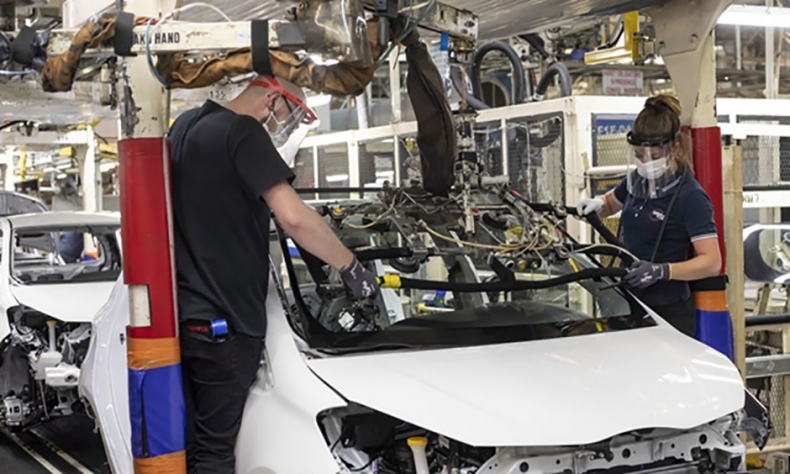Post-COVID-19 Recovery Needs an Open World to Reconnect the Economic Fuel Line

The COVID-19 pandemic will cause a shock to the global economy. No country will be able to avoid its impacts. In order for the global economy to recover, it is necessary for an open world to reconnect the fuel line to promote economic resumption.
The global COVID-19 health emergency and the resulting socio-economic impact has sent shockwaves through both global trade and the economy. The International Monetary Fund (IMF) recently projected that the global economy will contract sharply by 3% in 2020. In addition, the WTO predicts that world trade is set to plummet by between 13% and 32% this year due to the COVID-19 pandemic, with nearly all regions suffering double-digit declines in trade volumes.
Looking back over the past several months, most countries’ instinctive reaction to the COVID-19 crisis was to look inwards and act alone. For example, France and Germany banned the sale of vital hospital equipment outside of their national borders in March. Export protectionism is contagious. The United Kingdom, South Korea, Brazil, India, Turkey and dozens of other countries set restrictions on the export of medical supplies, pharmaceuticals, and even food. As a result, borders have closed, supply chains have been disrupted, and regional economic activity has fallen. These actions have turned the world inward and closed it off, leading to economic recession.
However, it is indisputable that the virus knows no borders, and the economic recession from the pandemic is worldwide, not national. In an interdependent and connected global economy, no country can be self-sufficient – no matter how powerful or advanced it may be. In addition, the underlying causes of this economic crisis or recession are different from those of the 1930s crisis and the 2008-09 financial crises.
This is an external shock caused by cutting the fuel line to the economic engine. In order to help the global economy recover, countries need to reconnect the fuel line properly. Two factors will determine the strength of the recovery. One is the effectiveness of measures to prevent the virus from spreading and bringing the pandemic under control. The other is the policies being taken by governments to solve the problems.
As such, solutions to the pandemic and economic recovery must be international, and global cooperation must not be afterthought. A global pandemic cannot be solved at the national level. The health response must include helping one another, especially countries with vulnerable health care systems. Funding and medical support from the international community is urgently needed for essential personal protective equipment and vaccine development.
Right now, there are strong forces forcing many countries to turn inwards, which will further sever the economic fuel line. Therefore, it is essential to remind nations that it is in their national interest to think both outwardly and globally.
The adverse economic consequences of COVID-19 will affect every economy around the world. Many countries have broken most of the economic rules as they have responded to the pandemic at the national level, while the international response has been inadequate. Even rich countries such as Italy, Germany and Spain have struggled to support their economies, not to mention less developed countries. This economic recession requires an economic response at a truly international and global level which includes more resources for multilateral institutions, such as the IMF and World Bank, to provide a coordinated solution for economic recovery.
Moreover, the most important policy to reconnect the economic fuel line is to keep the global economy open. Supply chains disrupted by the pandemic will resume once the virus is brought under control if there are no restrictions to international trade by governments. Government policies turning inward to favor domestic over international interests will not work during the COVID-19 pandemic and post recovery.
However, some countries have already applied export bans on medical equipment, personal protective equipment and pharmaceuticals, which will exacerbate shortages of these goods, and do nothing to incentivize additional production or the entry of new manufacturers. These methods also disrupt business plans, discourage the distribution of products and call for changes in transshipment patterns.
In addition, discrimination against foreign commercial interests will reinforce the trend towards more restrictive policies that had already emerged before the pandemic. Furthermore, some countries have capitalized on the pandemic by calling on manufacturers to return and repatriating supply chains. However, concentrating production in a single country is hardly risk-free, given the potential risk for environmental upsets.
In conclusion, the COVID-19 pandemic will cause a shock to the global economy by cutting the fuel line for the economic engine from outside of the economic system. No country will be able to avoid its impacts as countries are all connected by global supply chains. In order for the global economy to recover, it is necessary for an open world to reconnect the fuel line to promote economic resumption.
He Shuquan is a professor at the School of Economics, Shanghai University.
 Facebook
Facebook
 Twitter
Twitter
 Linkedin
Linkedin
 Google +
Google +










